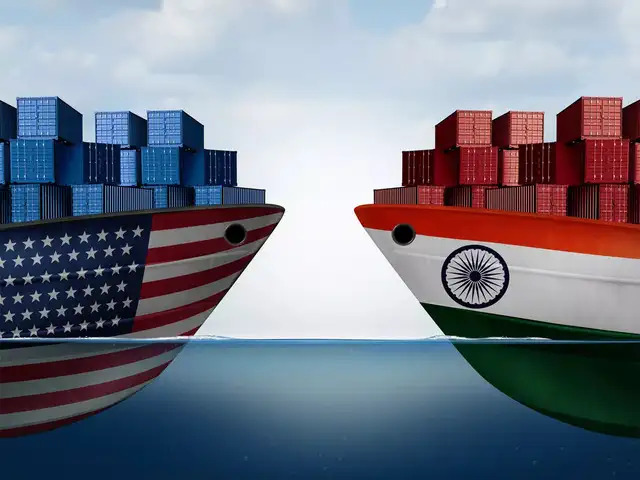 As the United States initiates policy changes, the global trade order is experiencing a state of flux. Transactional diplomacy, punitive tariffs, and stringent immigration curbs are reshaping the commercial landscape. For India, which has long depended on the U.S. as a major export destination, this new era signals opportunity as well.
As the United States initiates policy changes, the global trade order is experiencing a state of flux. Transactional diplomacy, punitive tariffs, and stringent immigration curbs are reshaping the commercial landscape. For India, which has long depended on the U.S. as a major export destination, this new era signals opportunity as well.
The US government has imposed an additional 25% tariff on Indian goods, citing New Delhi’s continued purchases of Russian oil, taking the total tariff to 50% — far higher than those levied on other Asia-Pacific countries. Alongside, immigration policy has tightened, with the H-1B visa program under heavier scrutiny and costs surging for Indian IT companies. The common question about the tariff is which all products immediately affected. Here is a list of Goods Affected under 50% Tag as on today*.
- Textiles & Apparel
- Gems & Jewelry
- Leather & Footwear
- Chemicals (Organic)
- Automobiles & Auto Parts
- Agricultural Products
- Machinery & Engineering Goods
- Ceramic, Glass, Stone
- Rubber Items
- Paper & Wood Products
- Furniture
Marine Products and Dairy Products will have higher tariff of 56- 82%
However, there are a few opportunities as well as challenges for the India. Here is a summary of such challenges.
- Heavy U.S. Dependency: 17.90% of India’s total exports go to the U.S making the country vulnerable to sudden policy shifts. Government needs to extend handheld services to all exporters to explore opportunities elsewhere.
- Low R&D Investment: India’s R&D spending is only 0.64% of GDP, far behind global innovation leaders. By getting back the talented Indians back to the county to fuel up R&D activities.
- High Domestic Costs: Compared to competitors, Indian textile and electronic sectors struggle with higher input and energy costs. Government needs to focus on initiate steps to reduce input costs right from the loan rate, infrastructure to power cost.
Currently, the choice is to formulate a robust strategy for Self-Reliance within the framework of growth as outlined below.
- Market Diversification
India must deepen trade relationships with the EU, ASEAN, and Middle East. Plain gold Jewellery exports to the UAE saw a remarkable surge of 127.62%, reaching a total of US$4240.09 million in FY2024, in contrast to US$1862.77 million recorded in FY2021-2022. - Domestic Fortification
India’s domestic market for pharmaceuticals, garments, and jewelry is booming. The gems & jewelry sector, for example, is expected to hit $168 billion by 2030, driven by rising incomes and cultural demand. India’s home textile industry is expected to expand at a CAGR of 8.9% during 2023-32. India’s pharmaceutical market will grow from 2025-30 at a CAGR of 5.31%. Such growing demand should offset the lost opportunities elsewhere in the coming years. - Value Chain Ascension
Indian firms must transition from contract manufacturers to innovators. This requires boosting R&D spending, fostering academic-industry partnerships, and focusing on quality and IP. - Policy Alignment
The PLI scheme has attracted over ₹1.46 lakh crore in investment across 14 sectors. Businesses aligning with these policies can benefit from subsidies, tax breaks, and export incentives. - Proactive Adaptation
Manufacturing firms must consider onshoring (e.g., Mahindra GenZe’s U.S. EV plant) or adopt Samsung-like flexible supply chains. IT companies should build delivery centers in visa-friendly geographies.
While protectionism and unpredictability pose challenges, they also compel Indian businesses to innovate, localize, and diversify. This is not just about weathering the storm but building a ship that sails sturdier seas. With the right strategic alignment, India can emerge not just self-reliant, but globally influential.
DART Consulting provides business consulting through its network of Independent Consultants. Our services include preparing business plans, market research, and providing business advisory services. More details at https://www.dartconsulting.co.in/dart-consultants.html
*Tariff rates as mentioned are subject to change and do not relying on the above numbers and keep checking updated info in government websites.
